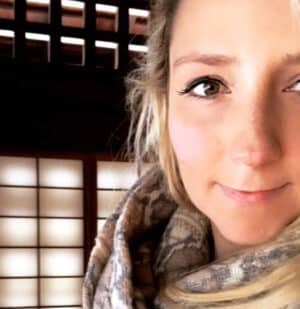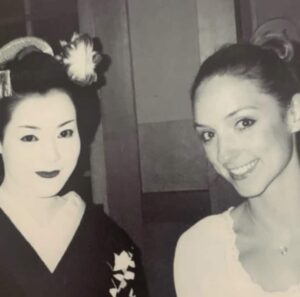
I adore people-watching in any language… I love how people interact… and I love and hate (I’m an emotional being) how we can’t one hundred percent control the way that we interact all the time. And then add a new language into the mix… and it’s so tricky not to feel like you’re a baby all over again.
I speak Japanese but I still take lessons once a week as I’ll never ever be “finished” and there are a few things that I have learned over the past few years and I wanted to share these little cheeky tips for when you just enter that “hang on… I might almost be ready to start a little teeny Japanese conversation!” stage.
1. Japanese people speak much more slowly, especially in a formal setting or when trying to be polite
I was on a tram in Melbourne once.
I’d just moved back to Australia after working at a preschool during the day and going to Japanese school at night.
There was a guy, a few years older than me, who was leading two Japanese businessmen around Melbourne. A tour or pre-business meeting intro or something..maybe?
He was speaking in Japanese and his Japanese was good. But he was speaking so quickly that it was almost impossible to catch each part of his ‘story.’ From a non-Japanese speakers ears, I imagine that his constant Japanese fast banter would sound VERY impressive. But it didn’t actually sound natural .
Next time you’re at a Japanese hotel or a nice restaurant just watch the staff and the way they greet you and give you your first basic instructions. They will speak quite slowly. And its not just because you’re learning. Watch them talking to other Japanese clientele. Especially when bowing. The arigato gozaimasu will most likely be stretched out. There are quite a lot of gaps between sections of the sentences too.
This is awesome for people who are learning Japanese because it gives you even more thinking time.
It’s really tempting to start throwing out quick sentences one after another when you do get talking. But breathe, leave gaps and to Japanese people – it sounds WAY more fluent.
2. The need to fill in all the silences… that’s a weird Western thing
A Japanese friend of mine returned from a year in Canada and although she was so sad to say goodbye to all of her new friends, when asked what made her the most happy to be back she said “Well today I got in an elevator. It was just me and another random man. And he didn’t try and make a comment about the weather or … make any attempt at small talk at all…It was sooo nice.”
Now I’m a talker and I adore human interaction. So it has taken me a long time (still working on it, even) to learn to leave silences.
In Japan, the thinkers come across as more intelligent too. And it also buys time to prepare a new sentence and make what you’re saying more intentional.
It’s a cultural issue that I love to use when I am digging deep for forgotten vocab.





